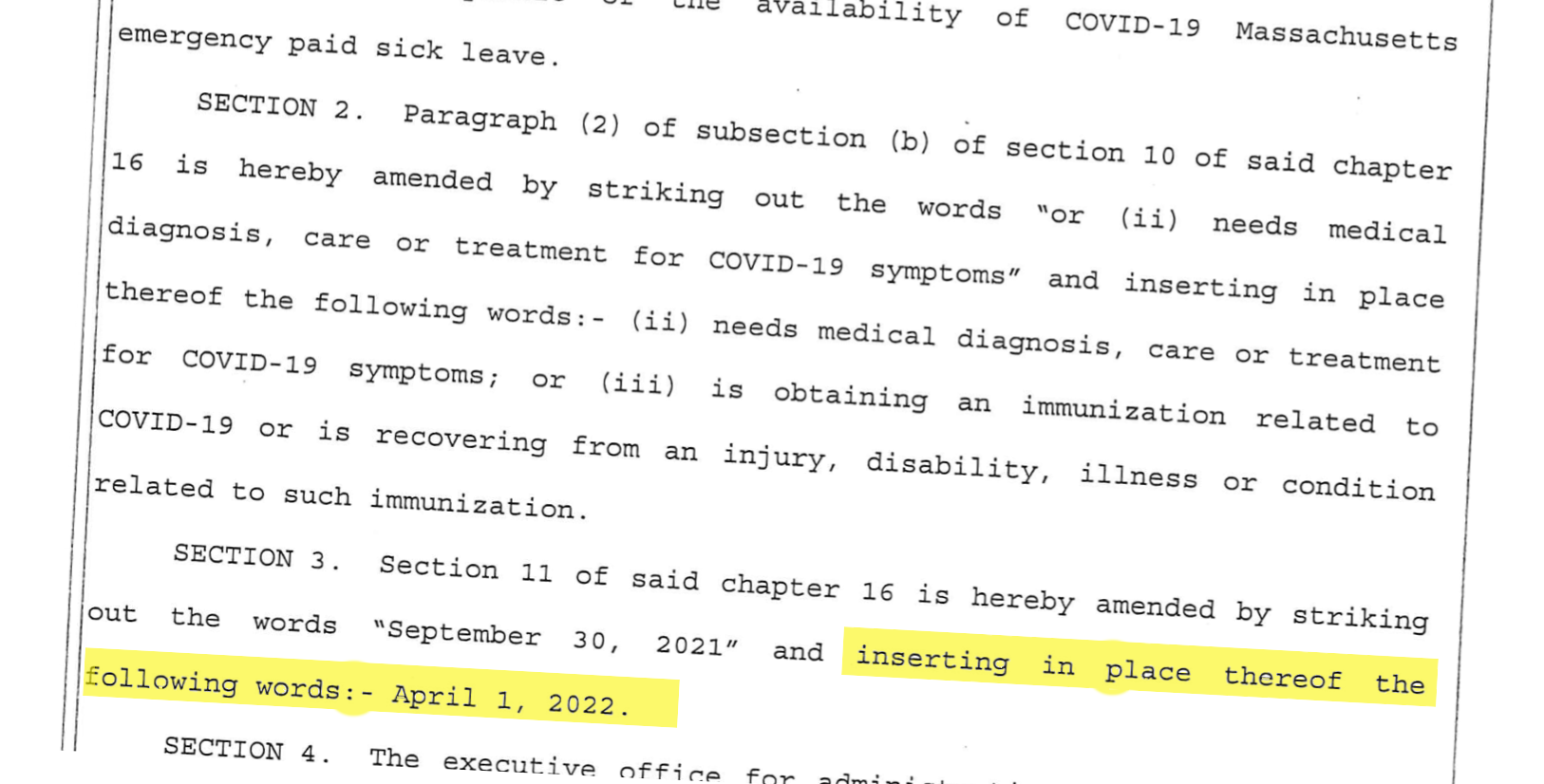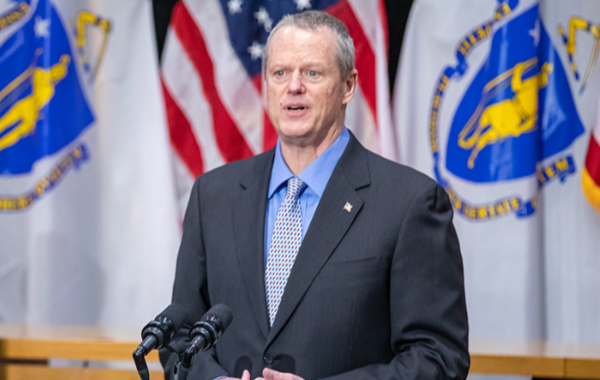by Rachel Reingold Mandel and Melanie Cormier, Ogletree Deakins
In May 28, 2021, Massachusetts Governor Charlie Baker signed into law “An Act Providing for Massachusetts COVID-19 Emergency Paid Sick Leave.” The act requires eligible Massachusetts employers to provide emergency paid sick leave to employees who are unable to work for COVID-19–related reasons.
The act was initially set to remain in effect until September 30, 2021, or until the exhaustion of $75 million in program funds, whichever came first. As of September 23, 2021, the $75 million in funds had not been exhausted. On September 29, 2021, Governor Baker approved an extension of the act to April 1, 2022.

Under the act, an employer must provide an employee with up to 40 hours of paid leave (a maximum benefit of $850 per week, reimbursable to the employer from the Commonwealth’s COVID-19 Emergency Paid Sick Leave Fund) when the employee:
- needs to “self-isolate and care for [himself or herself] because of the employee’s COVID-19 diagnosis”;
- needs to “care for a family member who is self-isolating due to a COVID-19 diagnosis”;
- needs to obtain a “medical diagnosis, care or treatment for COVID-19 symptoms”;
- needs to “care for a family member” seeking “medical diagnosis, care or treatment for COVID-19 symptoms”;
- is unable to telework due to a COVID-19 diagnosis “and the symptoms inhibit the ability of the employee to telework”;
- uses the time to obtain a COVID-19 vaccination or recover from illness related to the COVID-19 vaccination; or
- is subject to a quarantine order or similar determination, or such an order or determination applies to the employee’s family member, due to COVID-19 exposure or symptoms, “regardless of whether” the employee or the employee’s “family member has been diagnosed with COVID-19.”
Key Updates and Developments
When will the act expire?
The Massachusetts House and Senate passed legislation (Bill H.4127) on September 27, 2021, extending the act to April 1, 2022, or until the exhaustion of $75 million in program funds, whichever is earlier. On September 29, 2021, Governor Baker approved the extension of the act to April 1, 2022.
What happens to leave under the act?
Because Governor Baker signed the bill, approving the extension of the act, leave will remain available to employees until April 1, 2022, or until the exhaustion of $75 million in program funds, for the same COVID-19 related reasons listed above.
Are employers still required to provide leave?
Yes. Because Governor Baker signed the bill, approving the extension to April 1, 2022, employers will be required to provide COVID-19 emergency paid sick leave to their employees under the act. The anti-retaliation provisions of the act are also extended to April 1, 2022, or until the exhaustion of $75 million in program funds, whichever is earlier.
What type of leave is provided under the act?
The extension of the act expands the reasons employers can use leave for family members. The initial law allowed an employee to take leave to care for a family member who was “self-isolating due to a COVID-19 diagnosis” or who needed “medical diagnosis, care or treatment for COVID-19 symptoms.” The act now also allows an employee to take leave to care for a family member who “is obtaining an immunization related to COVID-19 or is recovering from an injury, disability, illness or condition related to such immunization.” The act does not change the other reasons for covered leave.
Are there any changes to the allocation of funds?
The new law reallocates up to $500,000 of the $75 million in funds for a public campaign to promote awareness of the act. Massachusetts Senate President Karen Spilka stated that just over $2 million of the program’s funds had been used.
About the authors
This article was drafted by the attorneys of Ogletree Deakins, a labor and employment law firm representing management, and is reprinted with permission. This information should not be relied upon as legal advice.
Rachel Reingold Mandel is a shareholder in the Boston office of Ogletree Deakins and represents management-side clients from a wide variety of industries, including healthcare, hospitality, and manufacturing.
Melanie Cormier is an associate in the Boston office of Ogletree Deakins. She represents employers in all aspects of federal and state employment litigation, as well as before administrative agencies.
Ogletree Deakins is a labor and employment law firm representing management in all types of employment-related legal matters. Ogletree Deakins has more than 900 attorneys located in 53 offices across the United States and in Europe, Canada, and Mexico. The firm represents a range of clients, from small businesses to Fortune 50 companies. www.ogletree.com

















You must be logged in to post a comment.